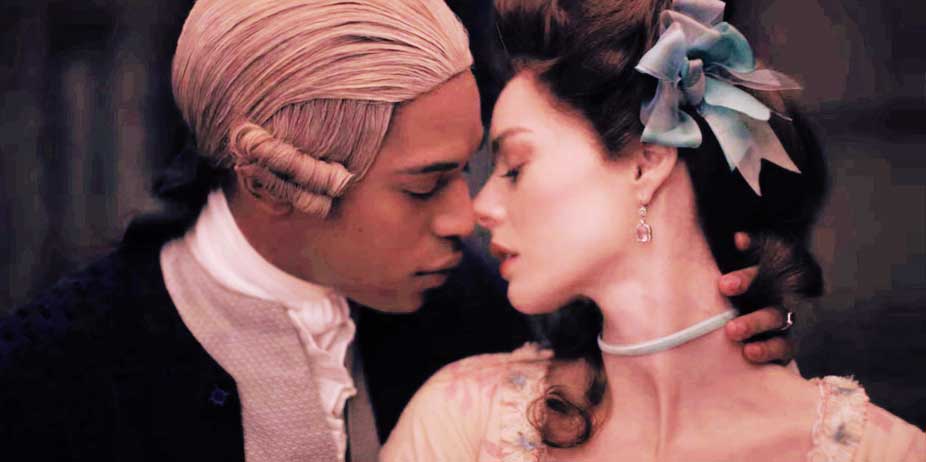
Chevalier (2022)
It’s always refreshing to see a historical period drama about real people that is somewhat respectful to the source material. Chevalier is an entertaining romp through history featuring a remarkable Black man doing something other than picking cotton, and a little less than I wish it had been.
In the middle of a concert, Mozart gets interrupted by a young Black man, Joseph Bologne (Kelvin Harrison), who asks if he might play a duet with Mozart. The composer laughs and rolls his eyes, but has one of his violinists hand over his instrument. To his utter shock, Joseph utterly outplays him and Mozart leaves in a huff. But the sheer talent on display does not go unnoticed. Prior to this, Joseph spent his young life in a boarding school, often mistreated due to the color of his skin. His insane talent for the violin soon set him apart from his peers and captures the attention of Marie Antoinette (Lucy Boynton).
In no time at all, the ambitious Joseph, who has earned the title of Chevalier, hears the Paris Opera House requires new management, and proposes himself as its director. Caught between her fondness for him, and the promise made to another talented artist, Marie proposes they compete for it. Whomever does the best opera at the end of the season wins the position! Joseph leaps into action, but one potential problem stands in his way… try as he might, he finds it difficult to stay away from Marie-Josephine (Samara Weaving), a once-renowned opera singer whose boorish husband forced into premature retirement. But her husband is not going to be around all the time, and, well, what the two of them get up to in his absence is no one’s business… or is it?
Chevalier is in many ways splendid and exactly the kind of story we should all want more of—which is to say, a story about a real Black figure from history, rather than try to insert one into a story where it makes no historical sense (the new Great Expectations). For a long time, Hollywood thought the only Black stories involved slavery; as Chevalier proves, there have been remarkable people throughout history to write movies about, including this master violinist. The film also thoughtfully explores the racism Chevalier experienced, even after he achieved great success (as he tells his mother, he's not allowed to marry a white woman, even if he falls for one). It does so within a historical context, making it a relevant part of his story without it overshadowing either his talent or his artistic achievements. In every way, this movie is gorgeous to look at and brilliantly acted. It’s compelling. I liked the main character even though he was full of himself, and it pained me to go through his disappointments. I ached a little to watch Marie and Louis march toward their eventual end. So it suffers me to say, it could have been even better.
The film spends too much time on his romance, and not
enough time on creating a more plausible reason for
Joseph to eventually turn on and renounce Marie
Antoinette and her court. Here, it comes across as an
abrupt and petty act of vengeance, when in reality, his
reasons were far more complicated. I would have enjoyed
seeing him get to know more about the people, see the
contrast between the decadence of his “friends” at
court, and the starving Parisians, and identify with
their plight. Not to mention how tired I am of movies
painting “husbands” in a bad light, to justify and
excuse the main characters’ adulterous affair (in this
instance, he’s a bore who refuses to let his wife sing
in public, even though she adores it). Though it has its
flaws, I enjoyed it and will watch it again. I hope it’s
not doomed to only appear on streaming networks, since
it would look gorgeous on a high definition disc.
Sexual Content:
Joseph has lots of romantic affairs and is shown waking
up between two women. A woman tries to seduce him using
suggestive language, but she is not his type, so he
turns her down. He winds up in a long-term affair with a
married woman, in which they are shown kissing,
caressing, and lying in bed together. We're never told
whether the relationship between his parents (a white
man and his slave) was consensual, but it likely wasn't.
The period gowns show lots of cleavage.
Violence:
Joseph is bullied and beaten up, left bruised and
bloodied, and a man threatens to break all of his
fingers so he can never play the violin again. We hear
that when a man discovered his wife bore a dark-skinned
child, he murdered it.
Language:
One f-word and one use of s**t.
